Today, May 31, is the birthday of Walt Whitman, born on this day in 1819. A few days ago, May 25, was the birthday of Ralph Waldo Emerson, born on that day in 1803. Both of these figures were influential to each other, and are deeply important and influential to me as they are to so many of us. I’ve written often about them both, shared celebrations and projects done in their honor. Last year I wrote this post for Walt Whitman, which also mentions Emerson, via the spine of a book spotted at the 2024 International Antiquarian Book Fair.
Happy Birthday, Walt Whitman!
Today is the birthday of our dear Walt Whitman, born 1819 in West Hills, NY. He’s been such a meaningful character throughout our lives, appearing in unexpected ways with profound and everlasting impact as he has for so many. I wanted to share something special today, a film about Walt I made in 2014 with Eric Hoegeme…
I wrote:
“My favorite (copy of Leaves of Grass) though was the rare 2nd edition printing from 1856, which has words from Ralph Waldo Emerson on the spine. I saw two examples of it in separate booths at the fair, and Benoit Forgeot showed me his copy up close which I loved seeing. It’s a smaller size edition and on the spine it has gold-stamped, 'I Greet You at the / Beginning of A / Great Career / R.W. Emerson.' <3 I love this detail, because I love Emerson of course, and because it shows the possibility of connection between our beloved writers, the way they can inform, inspire, and encourage each other, sometimes passing each other in the same timeline, or sometimes decades or centuries apart. There are connections and through-lines, ones that are expected and ones that surprise us so much. I love to see examples of these moments, reminders of admiration and the flexible elasticities of time and place. These writers become our friends, our teachers, our support and comfort, our inspiration and our own sacred brand of encouragement, and why shouldn’t they be?”
I really wanted to do a special post for Emerson on his birthday this year, but I wasn’t able to. I got behind on a handful of tasks and my Substack had to be put on hold for a moment, which I didn’t like very much. It’s been 13 days since my last post and I’ve missed writing them. I apologize to Emerson for this blunder, though I believe wherever he is, he is watchful and vigilant, aware of the ways he’s honored and appreciated still, and from what I know and imagine about his personality, I think he would be kind and understanding, the humble and earthly man that he seemed to be.
Our dear Emerson, essayist, thinker, philosopher, and great teacher, was born in Boston, where he lived his early life with his mother, Ruth Haskins Emerson, his father, Reverend William Emerson, and his siblings, William, Edward, Robert Bulkeley, and Charles. He did have three other siblings who died very young - Phoebe, John Clarke, and Mary Caroline. His father was a Unitarian minister, and Ralph Waldo was a seventh-generation descendant of Mayflower ancestry. True New Englanders through and through.
When Emerson was 7, his father died from stomach cancer, and his mother took care of the family on her own with support from an aunt who Emerson admired and stayed in close contact with until she died, more than 50 years later. She was his earliest teacher, Mary Moody Emerson. He referred to her as a “spirited and original genius in her own right,” and to her guidance as a “blessing which nothing else in education could supply.”
He started out his formal education at Boston Latin School when he was 9 years old, and when he was 14, in October 1817, he went to Harvard College. In his junior year of school, he started journaling, and called his journals, ‘The Wide World.’ They had begun unofficially with collecting names of all the books he had read, quotations, class notes, etc, and these journals would continue to evolve for the next four years as his own thoughts emerged, as he truly became himself.
Here are some entries from 'The Wide World.’
Dr Phillis Cole writes: “Many students kept journals, commonplace books, or diaries, but Emerson’s title for this one―“The Wide World”―measured his unusually ambitious compass. Since the year before, he had been accumulating notebooks for college themes, lists of books read, course notes, and commonplace books with quotations from his reading. But now in January 1820, he wrote of uniting his “new thoughts” with the “old ideas” of other writers. Imagination would be their ordering principal, the “generalissimo” of “all the luckless ragamuffin Ideas” gathered here, he announced. Only that faculty, he felt, gave form to the “thousand pursuits & passions & objects of the world”.
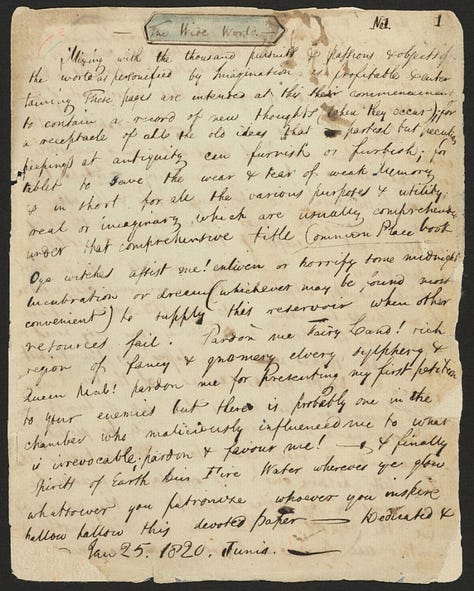
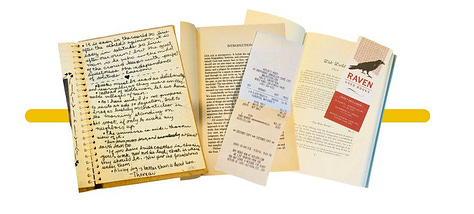
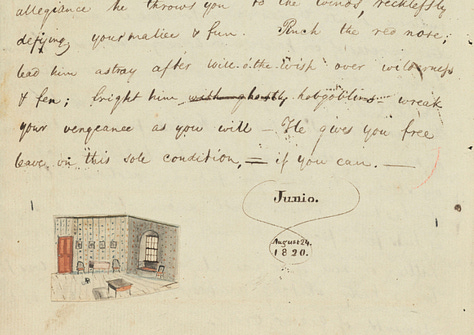
He also served as Class Poet at Harvard, presenting original work to the school in his senior year. He was writing essays, poetry, thoughts, and ideas. Planting seeds, exploring. As we know, Emerson went on to be a great leading thinker, perhaps the most prominent American thinker of the 19th century, and his essays and books are still read in schools and by individuals all over the world today, 143 years since he died.
In the fall of 1829 he married his first wife, Ellen Louisa Tucker, and also was ordained as a junior pastor to Boston’s Second Church. Ellen loved Ralph Waldo and literature, her dog was named Byron after Lord Byron, though she was very sickly, battling illnesses, and she died of consumption on February 8th, 1831, only 18 months after their marriage. Her last words before death were, "I have not forgot the peace and joy." Emerson was devastated to lose her. He wrote to her in his journal in the form of present letters, and visited her grave every day. After this personal tragedy, he also lost his faith in the church, eventually resigning as pastor in 1832 stating, "I have sometimes thought that, in order to be a good minister, it was necessary to leave the ministry. The profession is antiquated. In an altered age, we worship in the dead forms of our forefathers."
After some months, it was time to get away. So he boarded a ship, the brig Jasper, on Christmas Day 1832, and traveled throughout Europe visiting literary figures including Thomas Carlyle, Samuel Taylor Coleridge, and William Wordsworth, looking new inspiration. It was on a particular visit though, to Jardin des Plantes in Paris when his life was forever changed. American historian, Robert D. Richardson writes, "Emerson's moment of insight into the interconnectedness of things in the Jardin des Plantes was a moment of almost visionary intensity that pointed him away from theology and toward science."
He came back to the USA on October 9, 1833, and one year later, he moved to Concord, Massachusetts. <3
I’m sure you know by now about my adoration for Concord and its writers and characters, its land and history. The Emerson family house, Old Manse, nestled in front of Concord River, is open to the public as a museum.
It’s nice to visit the house and imagine him growing up there. I really wish though that I could have attended one of his lectures - he gave around 1,500 of them, starting out with “The Uses of Natural History,’ offered to the people of Boston on November 5th, 1833 at the Boston Society of Natural History. This lecture was later expanded into ‘Nature’ his very first published essay.
A Personal Story
It was through this very essay that I reconnected with Emerson’s words as an adult. I had read snippets of Emerson and Thoreau in middle school English class, and though some of the readings were a little challenging at the time, I remember a particular sensation of enjoying them anyway, a comfort surrounding their words, the positive and inspired way they made me feel, if even abstractly, quietly.
Years later when I was a teenager, visiting a friend in Michigan, we had a fun idea to go to the local bookstore and choose books for the other person to read. It was a sunny day, so our plan was to set up lawn chairs on the sidewalk in front of his house and spend the afternoon reading. So we made our way to the bookstore, and I remember us both in silly moods, laughing and prancing around the aisles like contestants on a game show, promised some prize or praise if we could find the perfect book. I took the challenge seriously and wanted to find something he would really love. Then I saw the title - Nature - and the name on the spine, Ralph Waldo Emerson. I quickly pulled the book off the shelf, revealing its bright leafy green cover. I remember holding it in my hands, sharing what I vaguely remembered. That was the book I chose for him. We made our purchases and drove back to the house, set up our lawn chairs, and commenced our silent reading. Though the problem was, I kept wanting to read his book more than mine (which I can’t even remember now), and so we spent the afternoon reading a Penguin Classics paperback edition of Nature and Selected Essays, and I still have the copy today :)
“Nature is a language and every new fact one learns is a new word; but it is not a language taken to pieces and dead in the dictionary, but the language put together into a most significant and universal sense. I wish to learn this language, not that I may know a new grammar, but that I may read the great book that is written in that tongue.”
Emerson found love and got married again, bought a house of his own in Concord in July 1835 (which is also open to the public now as a museum), and with his wife Lydia ‘Lydian’ Jackson Emerson, they raised four children and hosted countless guests and visitors. The Emersons were deeply beloved, active in their community, and serious advocates for social and environmental issues, human and animal rights. Ralph Waldo was one of the leading citizens of Concord and became a prominent voice of reason throughout the country.
I have imagined living in Concord amongst them all since I was a teenager, and the conversations I imagine with him in particular are always warmhearted and lined with that particular kindness, virtue, and grandfather wisdom that seems to be his alone. He was complimentary to his peers and also challenged them - he seems to have had such an elegant and balanced way of navigating it all. In the fall of 1837 he asked dear Henry (David Thoreau), “Do you keep a journal?” a question which of course changed Henry’s life forever, too. Emerson’s journals were published at 16 volumes, and Henry’s at 47 volumes, all thanks to the seeds planted originally by Emerson’s 'The Wide World.’ Thank goodness for The Wide World. :))
Back to Walt Whitman
I could continue now about Concord, but today is about Walt Whitman! Oh, I’m sorry Walt. <3 Though just like Emerson would be understanding about me missing his birthday post, I know Walt would laugh and be honored to share his birthday celebration with Emerson. As it says in a PBS article online, “There was, however, one man whose praise Whitman desired and cherished more than any other. He would refer to this man as his "master," Ralph Waldo Emerson.”
After writing and publishing Leaves of Grass, Walt wished for a blessing from Emerson, equivalent to a modern day ‘blurb’ I suppose. He sent him a copy of the first printed edition and then received a handwritten letter back from Emerson, which included the line, "I greet you at the beginning of a great career." These are the words printed on the spine of that rare and special second edition of Leaves of Grass (I mentioned before), and the full letter was also printed inside the book. Walt was so proud of this official approval from Emerson that he also had the letter printed in The New York Tribune, and he made a bunch of clippings of the printed letter from these newspapers, and pasted them into copies of the first edition! I wonder if any booksellers or collectors have ever found one of those!!! I would really love to see it.
Here is the text of the letter along with pictures of the handwritten pages.
And another interesting article about Walt Whitman and Books
The two writers remained friendly and in correspondence, and I believe they learned a lot from each other. When Walt Whitman was set to print a third edition of Leaves of Grass, he sought advice from Emerson who suggested he omit some of the ‘erotic’ parts to reach a larger audience. Whitman, who admired Emerson so much, declined this suggestion and stuck to his own. He found his own voice and confidence, and I am sure Emerson admired that, too. As he referred to Leaves of Grass as the “most extraordinary piece of wit and wisdom that America has yet contributed.”
Thank you so very much for celebrating both Walt and Ralph Waldo today. Is there someone in your life you feel a similar mutual respect and admiration? Maybe it would be nice to exchange handwritten letters, start a new correspondence together, maybe even one like this one above, rooted in praise for a project, encouragement for new work going forward.
To close, I want to share some quotes from both of our friends, inspiring thoughts to carry with us through the weekend, and to integrate into our lives, our communities.
In the comments, share anything at all that you like - a favorite quote from the ones below, anything from the post that inspired you or moved you, that made you think or remember, share any of your own experiences with their writers and their words and philosophies of life. As always I look forward to reading anything you would like to share.
Ralph Waldo Emerson Quotes
Trust thyself: every heart vibrates to that iron string.
Is it so bad then to be misunderstood? ,, To be great is to be misunderstood.
Before we acquire great power we must acquire wisdom to use it well.
There are no days in life so memorable as those which vibrated to some stroke of the imagination.
What is the hardest task in the world? To think.
Good criticism is very rare and always precious.
There are three wants which can never be satisfied: that of the rich, who want something more; that of the sick, who want something different; and that of the traveler, who says, “Anywhere but here.”
All life is an experiment. The more experiments you make the better.
The civility of no race can be perfect whilst another race is degraded.
Though we travel the world over to find the beautiful, we must carry it with us, or we find it not.
Life wastes itself while we are preparing to live.
We are by nature observers, and thereby learners. This is our permanent state.
Fear always springs from ignorance.
The only way to have a friend is to be one.
It is better to be alone than in bad company.
I respect cats, they seem to have so much else in their heads besides their mess.
We will walk on our own feet; we will work with our own hands; we will speak our own minds.
Health, south wind, books, old trees, a boat, a friend.
I hate quotation. Tell me what you know.
Walt Whitman Quotes
Be curious, not judgmental.
Keep your face always toward the sunshine - and shadows will fall behind you.
Do I contradict myself? Very well, then I contradict myself, I am large, I contain multitudes.
I have learned that to be with those I like is enough.
To me, every hour of the day and night is an unspeakably perfect miracle.
I exist as I am, that is enough.
I believe a leaf of grass is no less than the journey-work of the stars.
Simplicity is the glory of expression.
Have you learned the lessons only of those who admired you, and were tender with you, and stood aside for you? Have you not learned great lessons from those who braced themselves against you, and disputed passage with you?
Whatever satisfies the soul is truth.
After you have exhausted what there is in business, politics, conviviality, and so on - have found that none of these finally satisfy, or permanently wear - what remains? Nature remains.
Seeing, hearing, feeling, are miracles, and each part and tag of me is a miracle.
And your very flesh shall be a great poem.
Have you heard that it was good to gain the day? I also say it is good to fall, battles are lost in the same spirit in which they are won.
Stranger, if you passing meet me and desire to speak to me, why should you not speak to me? And why should I not speak to you?
Henceforth I ask not good fortune. I myself am good fortune.
I celebrate myself, and sing myself.
By the way, in the birthday post I wrote for Walt last year, I talked about a film I made for him with Eric in 2014 that I was having trouble tracking down. Eventually, I was able to see it again and it’s now in my possession - thankfully the Philadelphia Museum of Art had it saved in their archives from when we screened it. :) It’s a simple film, 12 minutes long, and though we didn’t know what we were doing with operating cameras and editing with software we learned on the spot, I really do love it and would love to show you all someday. <3 For now, I will watch it today in honor of Walt, and think of his words that are spoken throughout. I think my favorite part of the film is ‘Crossing Brooklyn Ferry’ - a reminder that just as we hold these figures close in our hearts, they hold us across time, close in theirs.
……
It avails not, neither time or place—distance avails not;
I am with you, you men and women of a generation, or ever so many generations hence;
I project myself—also I return—I am with you, and know how it is.
……
Just as you feel when you look on the river and sky, so I felt;
Just as any of you is one of a living crowd, I was one of a crowd;
Just as you are refresh’d by the gladness of the river and the bright flow, I was refresh’d;
……
What is it, then, between us?
What is the count of the scores or hundreds of years between us?
Whatever it is, it avails not—distance avails not, and place avails not.
Thank you Emerson and Happy Birthday, Walt Whitman. <3
Have a great weekend, everyone.


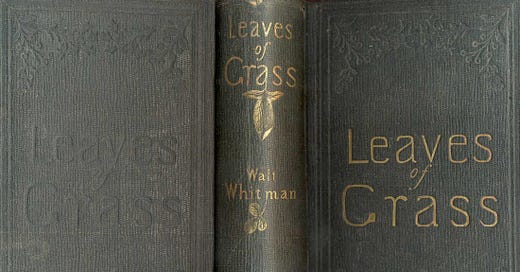


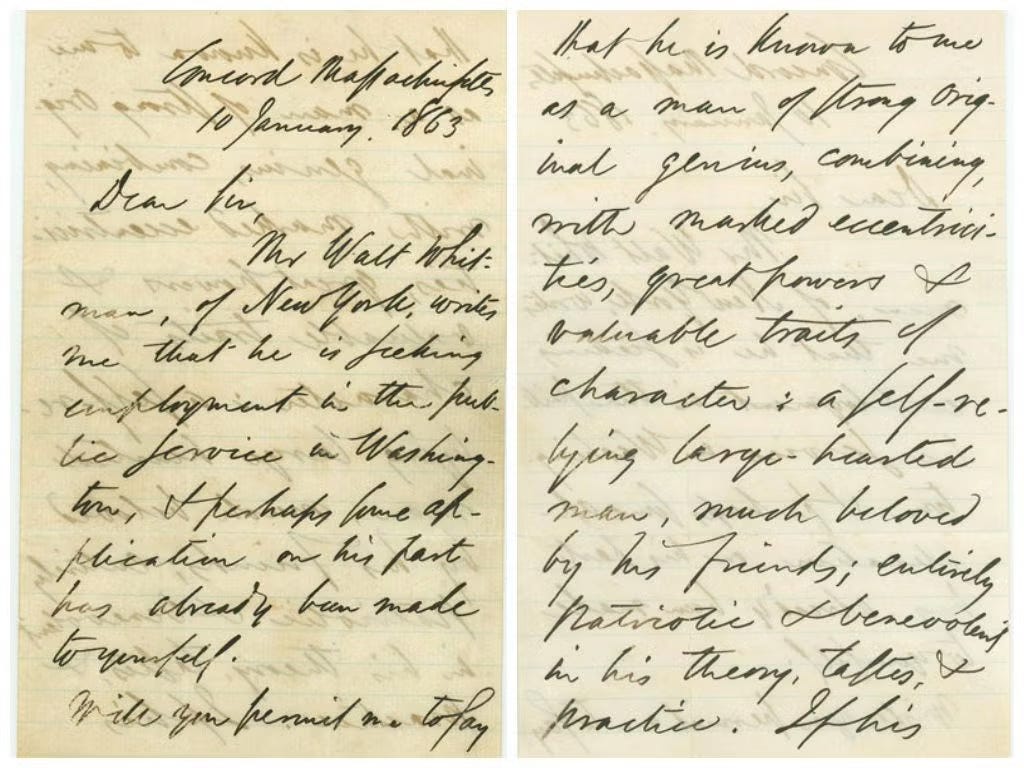
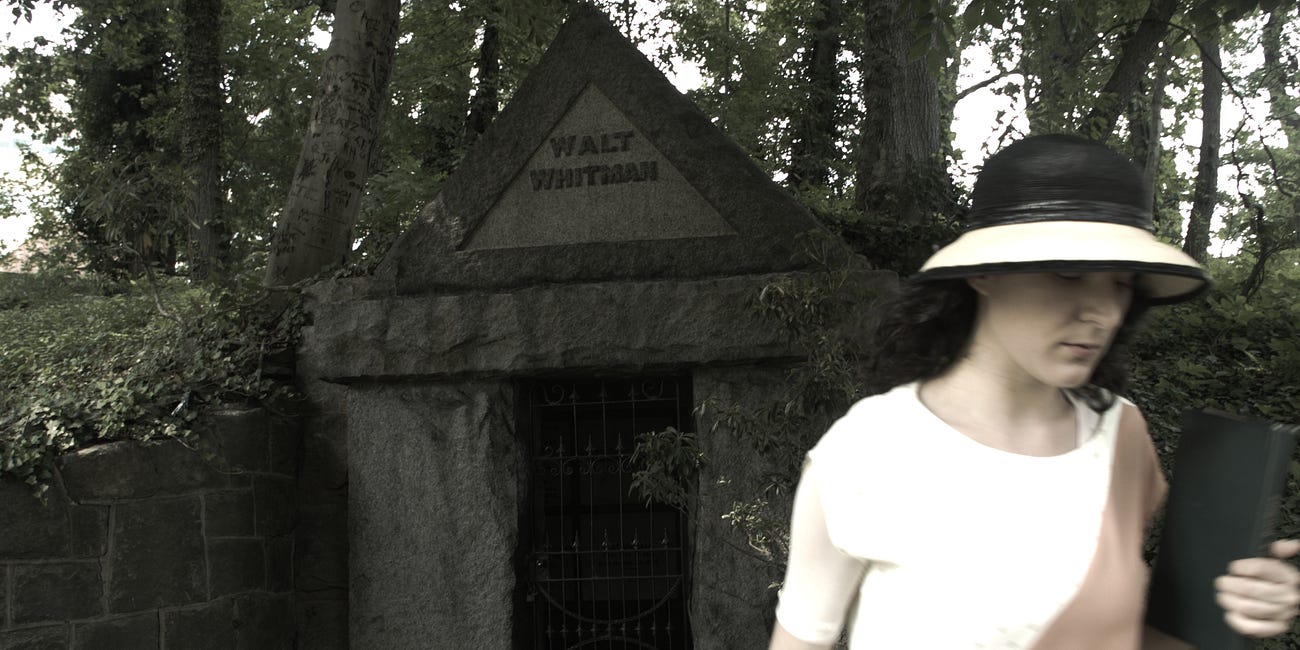

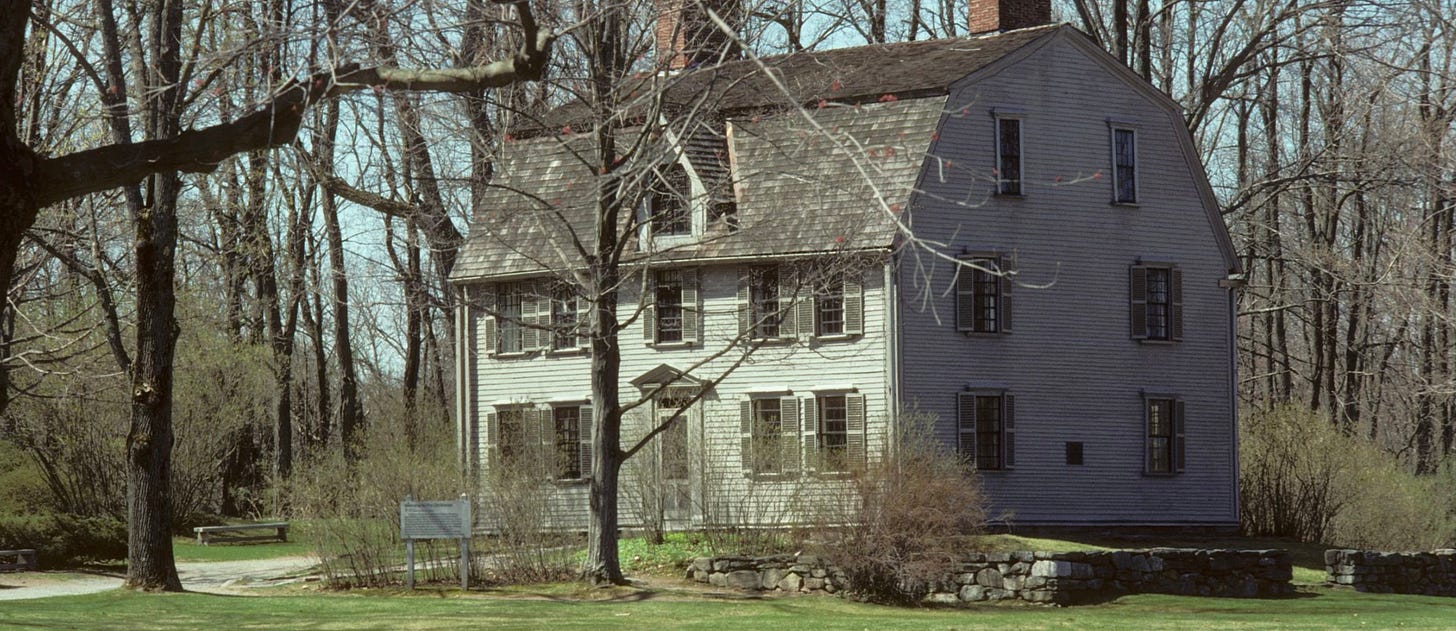
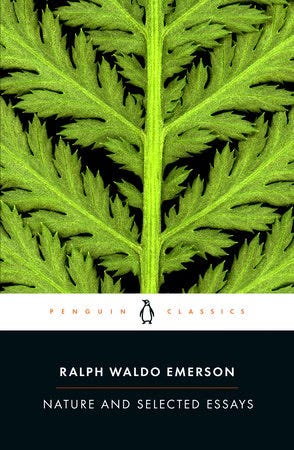
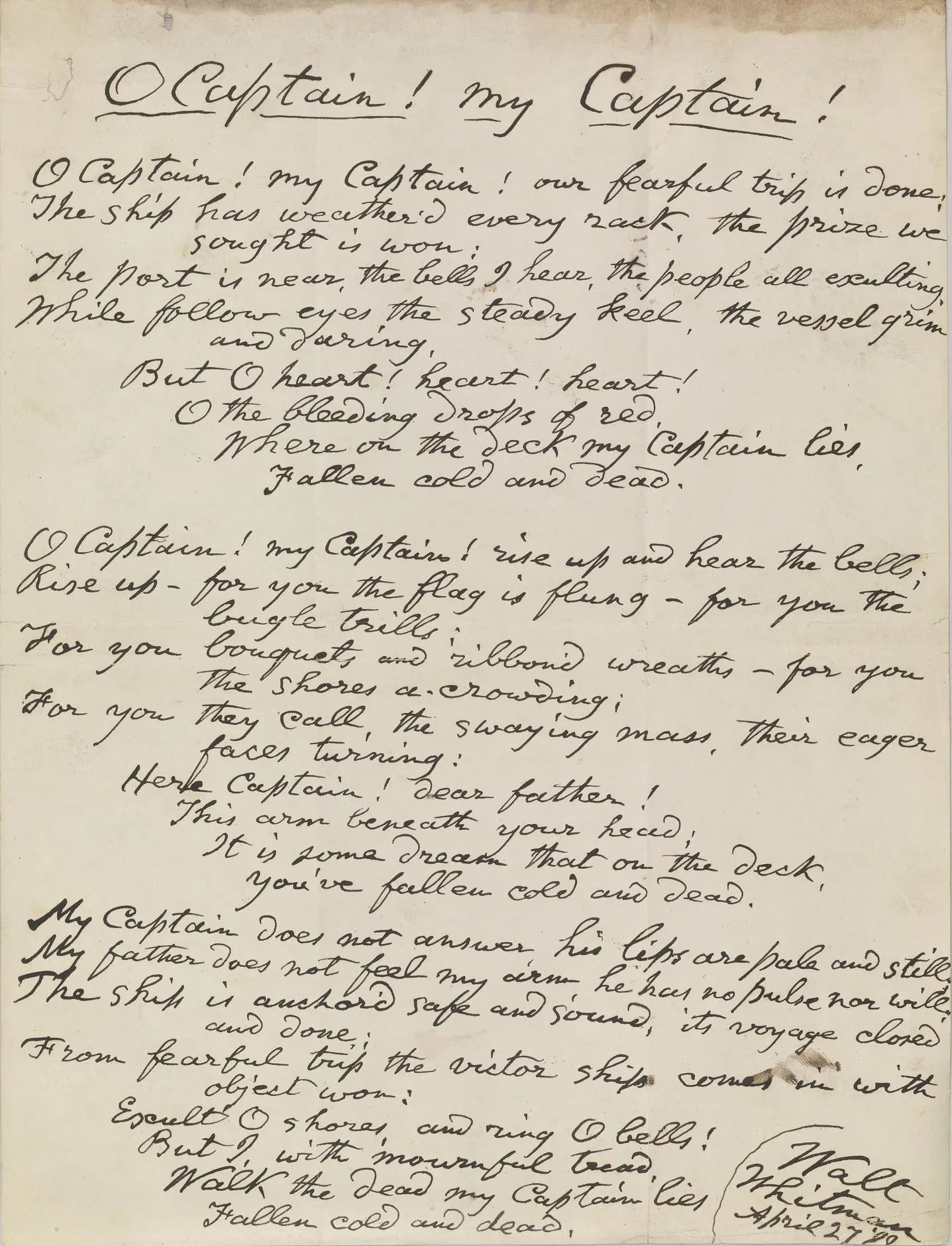

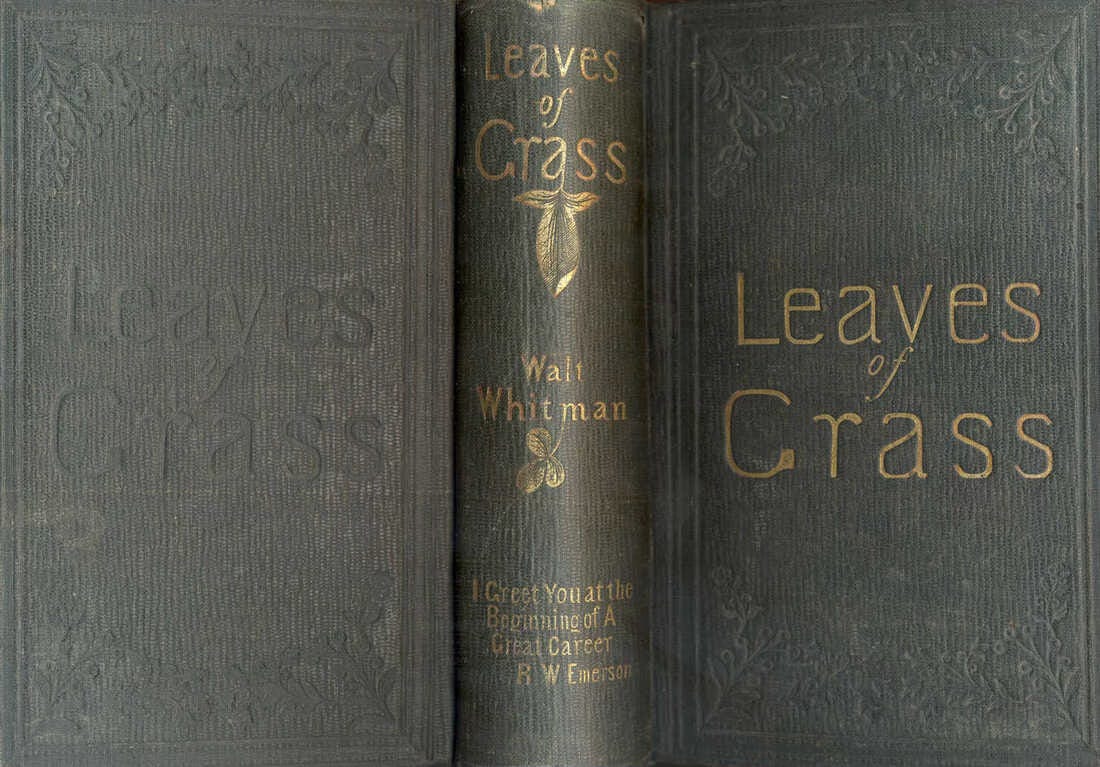
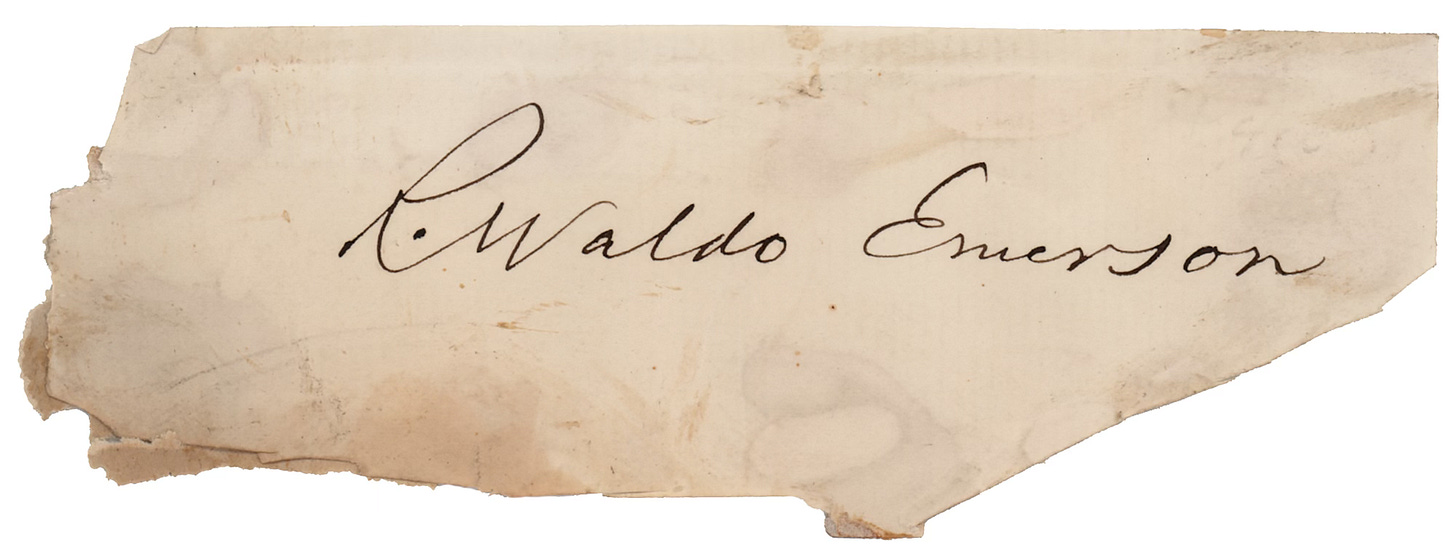

Brilliant, Jesse! You do our Poetry Father proud, his respected elder, too. Like WW, you are vast, you contain multitudes.
Thank you for this wonderful article, Jesse! And thanks for the samples - I particularly love studying the handwriting of both these gentlemen. A happy birthday to them is a happy day for all of us. You are fortunate to have that early edition of LOG in your collection.
"O Captain! My Captain!" was a favorite of my father. Ideas have lifespans, and can live with us beyond many births and deaths.
BTW Didn't Lawrence Ferlinghetti quote or paraphrase
'I Greet You at the / Beginning of A / Great Career / R.W. Emerson.' to Allen Ginsberg, early in his career?